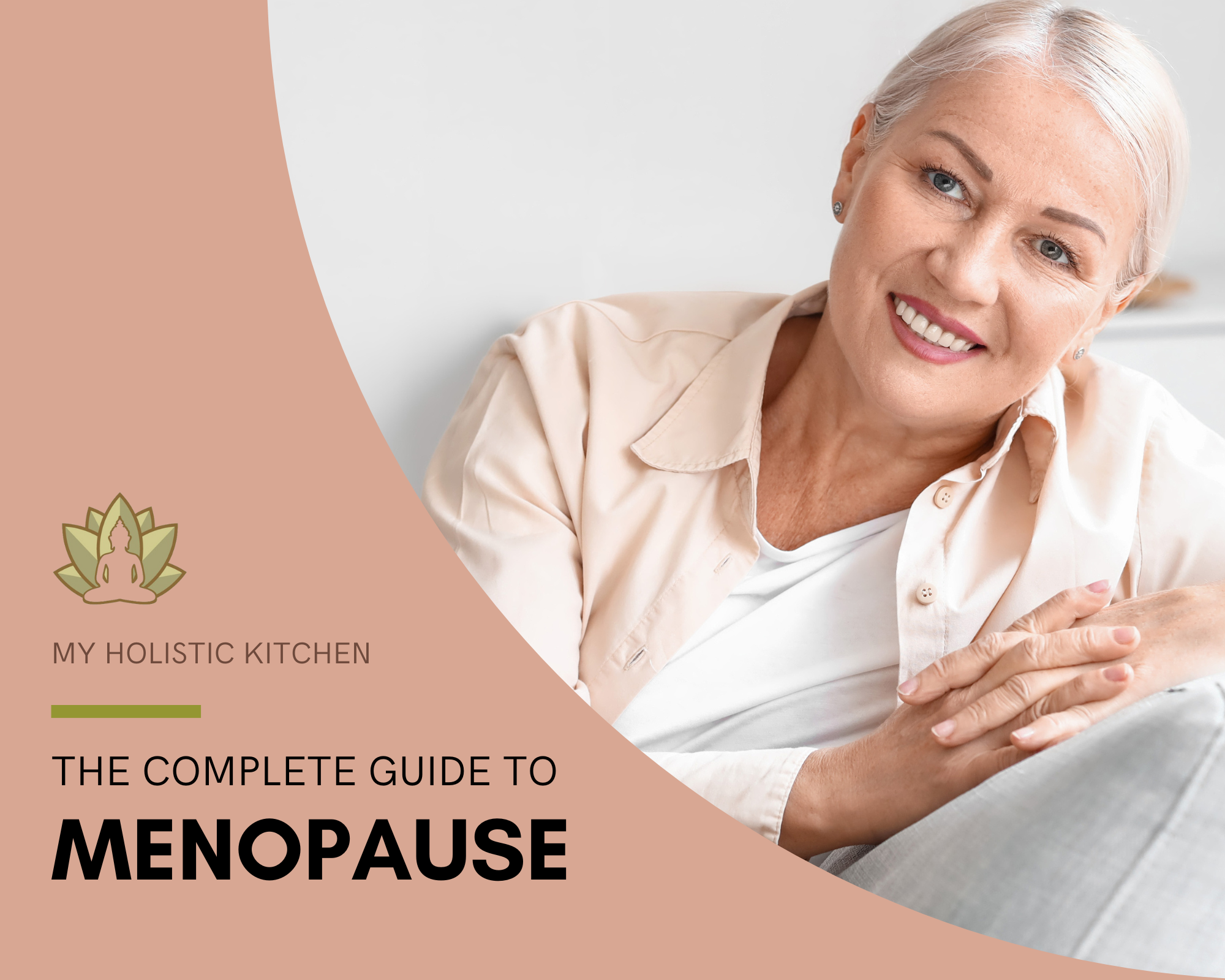
Menopause happens to every woman at some point in her lifespan. It’s not an illness or a disease… it’s just another phase in a woman’s life. Not everyone’s experience is the same during this phase…. Some people breeze through it without any issues or discomfort, yet others complain about its crazy-making symptoms such as hot flashes, night sweats, mood swings, weight gain, sleep disturbances, fatigue and forgetfulness.
You can’t cure menopause—it’s not an illness, after all! But you sure can cope with it and even empower yourself to be healthier, wiser and stronger and totally transform your life. If you get the balance right and embrace these changes then you can celebrate the new chapter in your life and even ignite greater health and happiness than ever before.
Why does menopause happen?
Women are born with all of their eggs, which are stored in their ovaries. Their ovaries also make the hormones estrogen and progesterone, which control their period (menstruation) and the release of eggs (ovulation). Menopause happens when the ovaries no longer release an egg every month and menstruation stops.
Physical changes happen as your body adapts to different levels of hormones. The symptoms you experience during each stage of menopause (perimenopause, menopause and postmenopause) are all part of your body’s adjustment to these changes.
What are the signs & symptoms of menopause?
You may be transitioning into menopause if you begin experiencing some or all of the following symptoms. Some people may have intense symptoms, while others have mild symptoms. Not everyone will have the same symptoms as they transition to menopause. Contact a healthcare provider if you’re unsure if your symptoms are related to menopause or another health condition.
- Hot flashes- We all have heard of this! It’s a sudden feeling of warmth that spreads over your body!
- Night sweats
- Vaginal dryness
- Urinary urgency (an urgent need to pee more frequently)
- Insomnia- Difficulty sleeping
- Emotional changes (irritability, mood swings or mild depression)
- Weight gain
- Hair loss or thinning
- Dry skin, dry eyes, dry mouth
- Breast tenderness
- Irregular periods or periods that are heavier or lighter than usual.
- Some people might also experience Heart palpitations
- Frequent Headaches
- Joint and muscle aches
- Changes in libido (sex drive)
- Brain fog- Difficulty concentrating
- Occasional memory lapses
What is the normal age for menopause?
Menopause is defined as a complete year without menstrual bleeding. Most women will experience menopause at the same time as their mothers went through it if we keep the environmental factors aside!
The average age of menopause in the United States is approximately 51 years old. However, the transition to menopause usually begins in your mid-40s.
Some women can go through menopause early. It can be the result of surgery, like if their ovaries are removed in a hysterectomy, or damage to their ovaries, such as from chemotherapy. If it happens before age 40, for any reason, it’s called premature menopause.
Natural menopause isn’t caused by any type of medical or surgical treatment. It’s slow and has three stages:
- Perimenopause – This phase usually begins several years before menopause, when your ovaries slowly make less estrogen.
- Menopause – This is when it’s been a year since you had a period. Your ovaries have stopped releasing eggs and making most of their estrogen.
- Postmenopause – These are the years after menopause. Menopausal symptoms such as hot flashes and night sweats usually ease. But health risks related to the loss of estrogen increase as you get older. Now you are at a much greater risk for other diseases linked to low estrogen-like heart disease. Because estrogen is linked to keeping your arteries flexible, your blood flow can be impeded as your arteries harden. Women who are post-menopausal are at a much greater risk for heart disease even if they have not changed anything about their lifestyle from before menopause.
It’s a common misunderstanding that most women call themselves “in menopause” once the symptoms start. If you are still menstruating (even if it is irregular) – you are in peri-menopausal stage.
Unlike peri-menopause and post-menopause, menopause is not a “stage” but a point marked by that magic 12-month number. Symptoms may start years before actual menopause occurs.
There are three main reasons for menopausal discomfort as per Ayurveda:
- DOSHIC IMBALANCE– Since menopause is the transition from the pitta phase of life to the vata phase, if a woman already has a significant pitta or vata imbalance in the years before menopause, things are likely to get worse during menopause, which is a period when hormonal and other natural changes take place in the body.
- MISUSE OF SENSES- The misuse or overuse of the mind, body, emotions, or senses. This happens when a woman is going through a lot of stress – physical, mental or emotional or when a woman is under a lot of pressure – again physically doing a lot of hard work, or emotionally under pressure – is not happy or content with her life!
- TOXIC BUILD-UP– Toxins (Ama) block the channels that transport nutrition to the cells and remove waste from the body, thus contributing to hormonal imbalance leading to menopausal discomfort.
Here are some of my recommendations for a healthy menopausal transition!
Diet can be extremely important in the management of menopausal symptoms!
- It is also important to keep your digestion strong and free of toxins.
- A light-but-nourishing diet will aid your digestion and avoid the build-up of toxins.
- Avoid eating foods that are packaged, processed, frozen, canned or leftover.
- Eat organic foods that are cooked fresh each day.
- The bulk of your diet should consist of whole grains, fresh fruits and vegetables, legumes and good quality organic light dairy products.
- Avoid heavy foods such as meat, and cheese and frozen desserts like ice cream, especially at night.
- For both Pitta and Vata imbalances, a breakfast of oatmeal, cooked with apples and prunes and figs is a good way to start the day.
- If you are prone to pitta-based problems, such as hot flashes or excessive irritability, follow a pitta-pacifying diet: Avoid foods that are spicy. Avoid chillies, cayenne and black mustard seed. Avoid salty foods and foods that are Sour, such as yogurt (unless it is diluted and sweetened in a drink called lassi). Avoid sour fruits. Ketchup and other salad dressings and condiments made with vinegar should also be avoided.
- Favor foods that are bitter, astringent and sweet, as these are cooling to pitta dosha.
- Cook with pitta-reducing spices, such as coriander, cardamom, fennel, and cumin seeds.
- For both Pitta and Vata dosha, it’s important not to skip meals.
- Eat your main meal at noon, when digestion is the strongest.
- Try to eat at the same time every day, and go to bed and wake up at the same time.
- If you experience Vata-related issues of menopause such as memory loss or vaginal dryness, you’ll want to work at bringing Vata dosha back into balance. For this, eat foods that are cooked, warm, and unctuous (meaning that they have a small amount of good fats such as ghee and olive oil). Eat foods that are sweet, sour, and salty, as this balances Vata dosha. To learn more on balancing Doshas, please take advantage of our course BASICS OF AYURVEDA!
Sleep!
Both Vata and Pitta imbalances can cause sleep problems that will only make menopausal imbalances worse.
To keep both doshas in balance and to sleep more deeply at night, be sure you’re in bed before 10:00 p.m. and that you arise before 6:00 a.m. This is the time of night when sleep comes easier and is more restful. If you stay awake past 10:00, it will be harder to fall asleep, and you’ll also increase any Pitta imbalance, because 10:00 p.m. to 2:00 a.m. is the Pitta time of night, when the body needs to be at rest in order to cleanse and purify itself.
Regular oil massage!
The morning ABHYANGA, or ayurvedic oil massage, is extremely important for preventing menopausal problems and keeping vata in check.
Rest!
Be sure to get lots of rest during your menstrual cycle as you approach menopause, because this will keep Apana Vata in balance and avoid the more serious complications of menopause.
Daily Exercise!
Remember to do gentle exercises for Vata that are not too overheating for Pitta. This is important for keeping all doshas in balance. We all know that Staying active is equally important for bone health in the senior years of our life, especially in our post-menopausal years!
Stress Management!
Stress management is an integral component of our overall health and wellbeing! So learn to manage stress! Stress can disturb our doshas which can make this transition difficult to handle! To learn how to manage stress, please do take advantage of our self-paced online course THE COMPLETE GUIDE TO STRESS MANAGEMENT.
I would encourage all women concerned about their hormones and overall health and looking to improve their diet, energy level, mood, sleep, and keep a watch on weight in general to come and join me in navigating through this beautiful phase of life! Yes you heard me right – it is indeed a beautiful phase of life! So let’s jump into this new chapter with a positive attitude!
Check out our series of courses on Menopause!
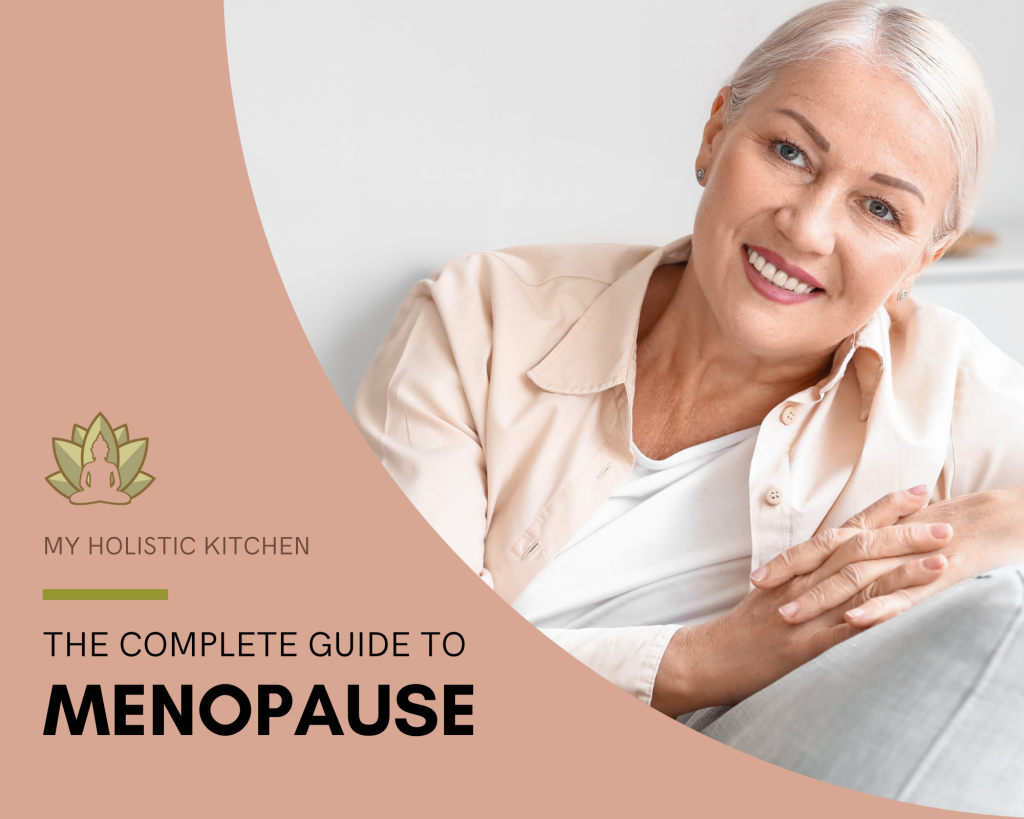
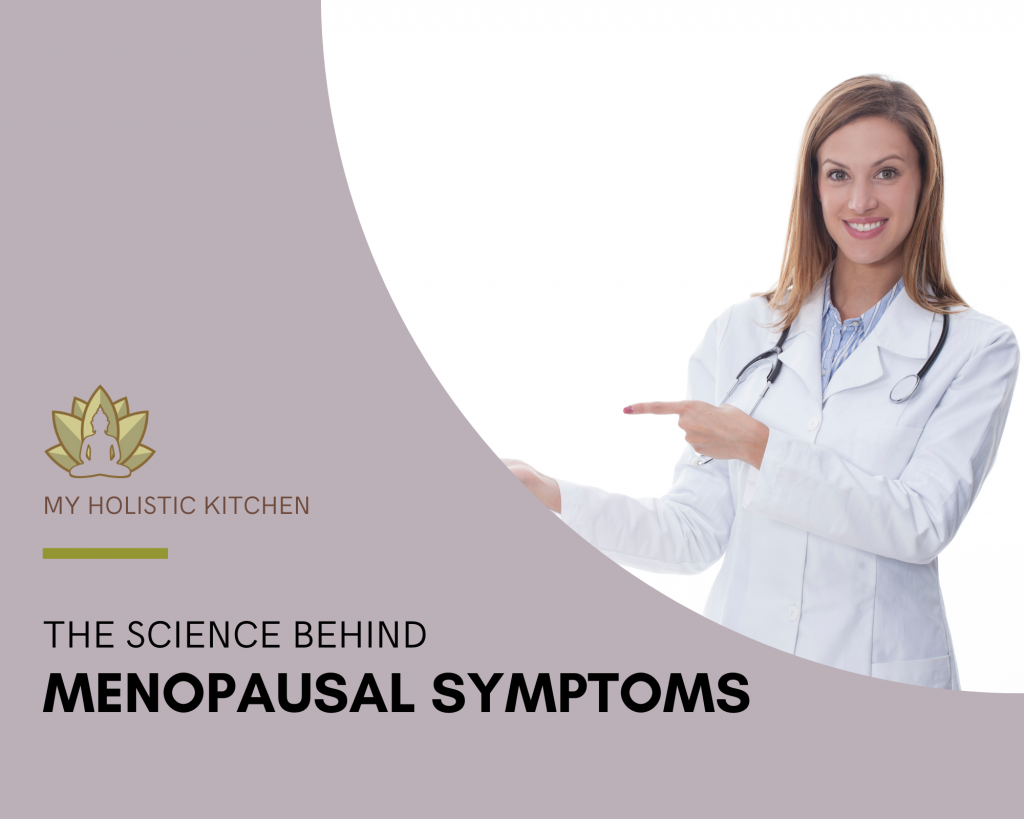
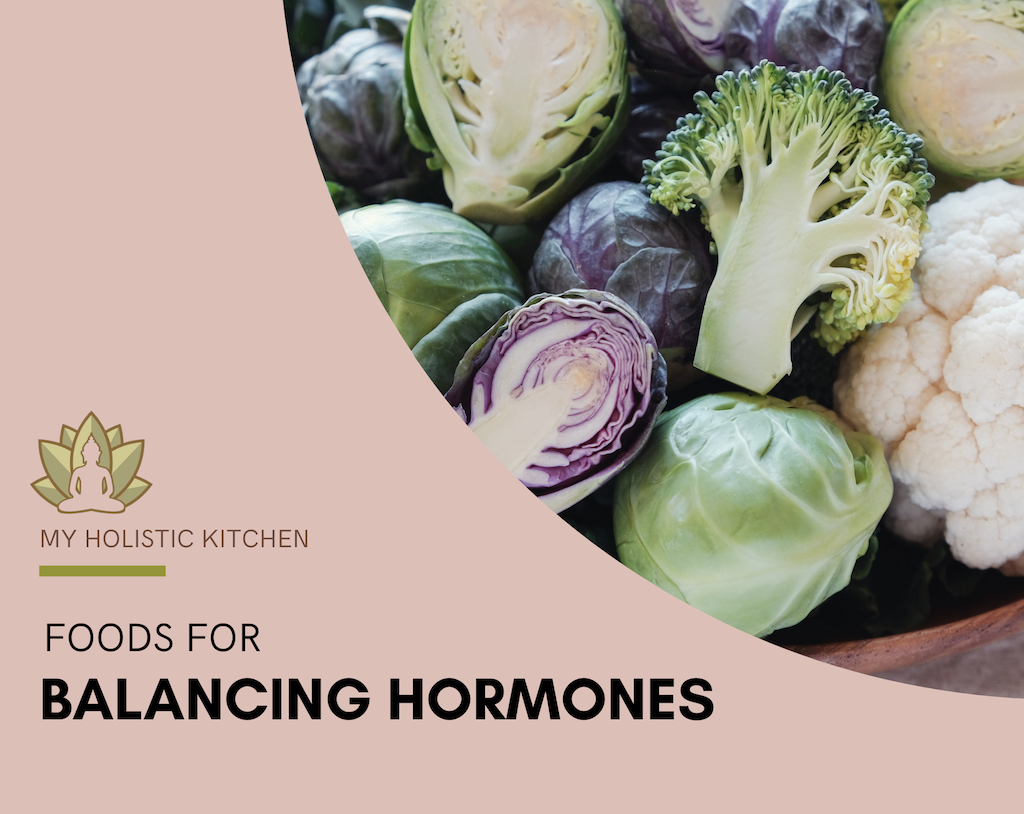
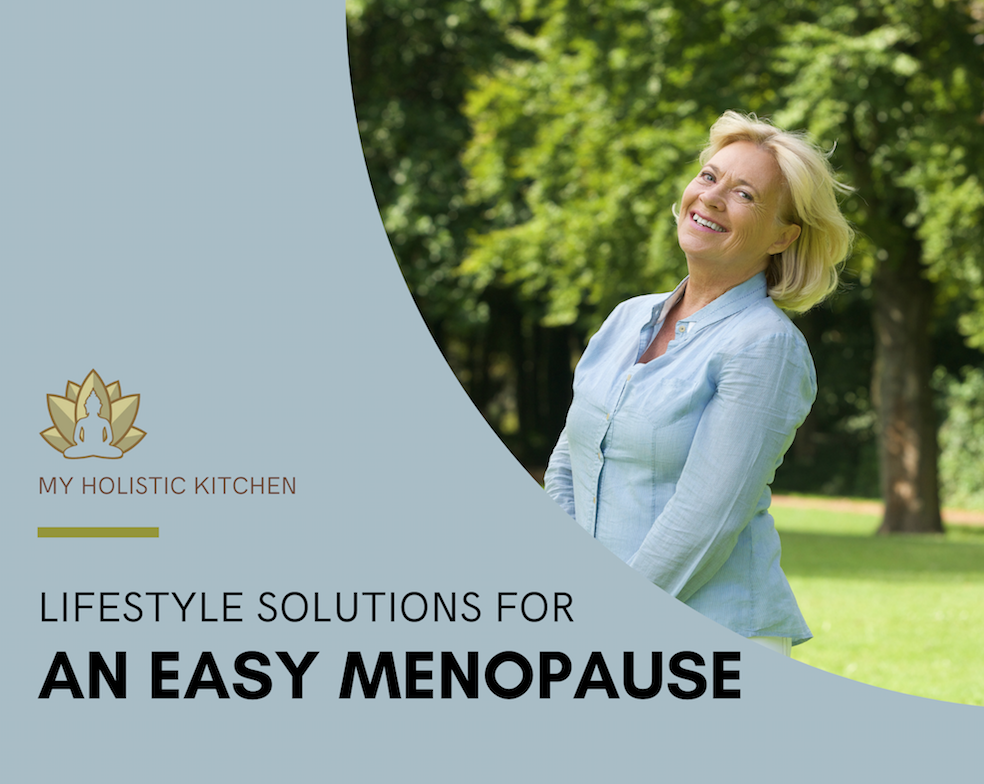
To book your very own private one-on-one nutrition consultation, please CONNECT with me.
Check out OUR SELF-PACED ONLINE COURSES that include a perfect blend of Holistic Nutrition and ancient Ayurvedic wisdom!
- THE COMPLETE GUIDE TO STRESS MANAGEMENT
- TAKE CONTROL OF YOUR BLOOD SUGAR NATURALLY!
- BASICS OF HEALTHY EATING
- THE DIGESTION- IMMUNITY CONNECTION
- MANAGE BACK PAIN USING DIET & LIFESTYLE
- WHAT’S YOUR DOSHA?
- BASICS OF AYURVEDA
- THE COMPLETE GUIDE TO MENOPAUSE!
- THE SCIENCE BEHIND MENOPAUSAL SYMPTOMS!
- FOODS FOR BALANCING HORMONES!
- LIFESTYLE SOLUTIONS TO MENOPAUSAL SYMPTOMS! (Yoga/Pranayama/Exercise/Sleep/Stress management)
CONNECT WITH US & BE THE FIRST ONE TO RECEIVE DISCOUNT COUPONS FOR ANY OF OUR SERVICES!
NAMASTE,

Preeti Syal
M.Sc., R.H.N., Certified Ayurvedic Lifestyle Consultant
The content provided in my blogs is for knowledge-sharing purposes only and is not intended to be a substitute for professional medical advice, diagnosis or treatment.


